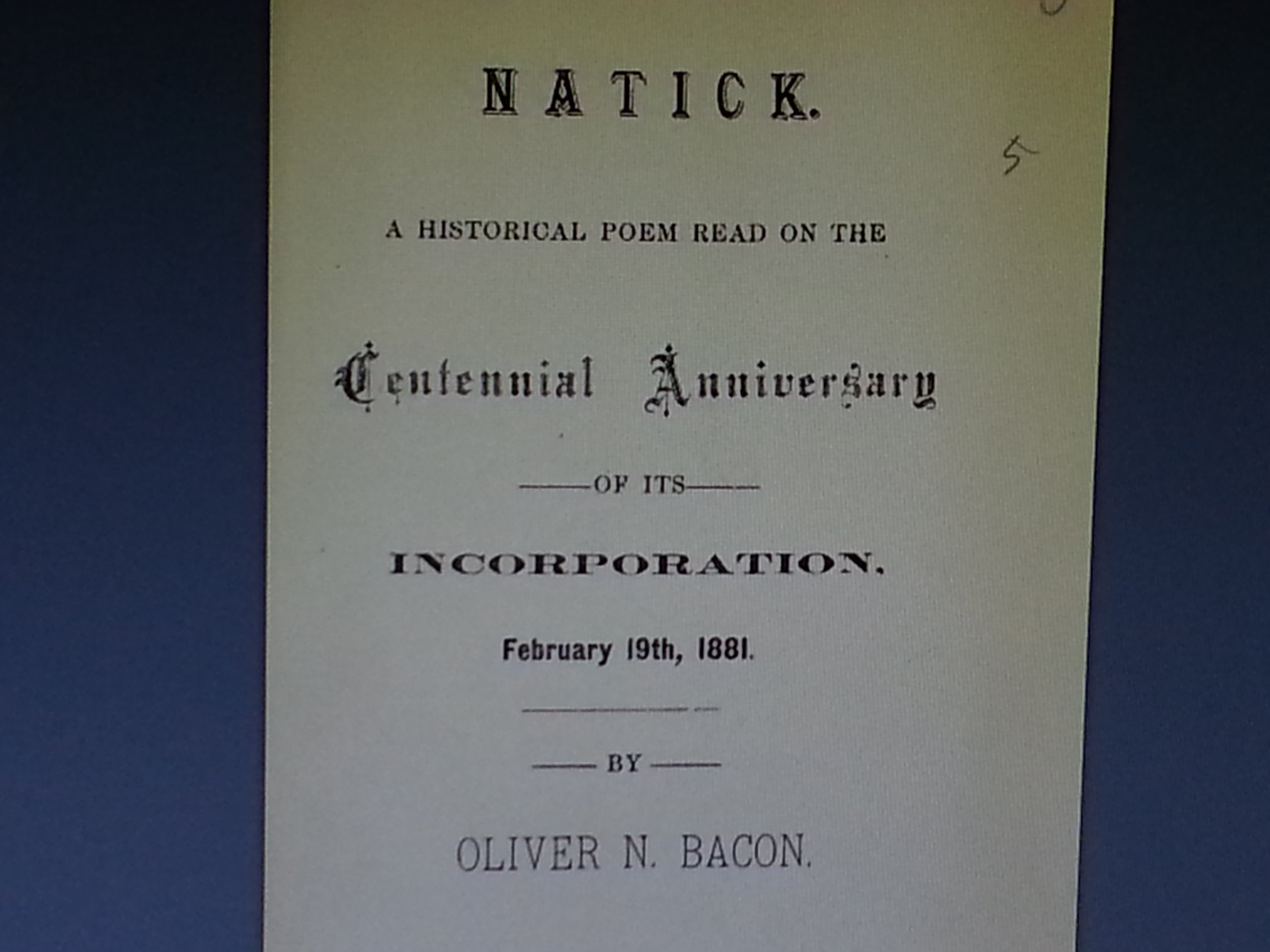
In 1881 Oliver N. Bacon wrote a poem to celebrate the centennial of Natick’s incorporation as a town on February 19, 1781.
Oliver N. Bacon’s 1881 Centennial Celebration Poem
February 19, 1881, was a big day for Natick town officials, community leaders, and the citizenry. It marked the 100th anniversary of Natick’s incorporation as a Massachusetts town when almost 650 people lived in the villages and neighborhoods that were included in the new town. For them and folks throughout the colonies, it was a critical time in the Revolutionary War, about eight months before the historic American defeat of British troops at Yorktown.
A century later, formal 19th-century public celebrations often offered popular entertainment: men and women were cheered as they made speeches, sang original songs, and recited formal and highly stylized poetry written for the occasion.
Poems were part of the program in 1881 when a committee of 55 planners was given a $500 budget to throw a big party, and Oliver N. Bacon, a noted attorney, offered his commemoration with a 250-line poem. There was a parade featuring a cornet band, every man in the Fire Department, every school student in town riding on horse-drawn “barges,” and a “most attractive” float with “young ladies from the High School” who represented all the states.
Title Page of Oliver Bacon’s Natick Centennial Poem
Bacon pulled out all the stops. Here’s one of his stanzas about the centennial event:
“Proclaim aloud to valley, hill and tree,
The happy close of one ripe century.
Since first our struggling fathers round them saw,
Midst new born freedom thrown the forms of law,—
Saw clearly laid by clerkdrawn statute down,
The legal rights and rules of Natick town.”
Additionally, Bacon recalled the Revolutionary War that was in progress when the town was incorporated:
“Perhaps the crazy monarch never knew,
How many real friends he had and true;
For he had searched a British map in vain,
For Natick's lakes and hills and Pegan plain,
But friends were here whose love was strong,
For mother land old England right or wrong.
Men too were here, as records plainly show,
Who met on battle field the gaudy foe,
Piled Bunker's heights with red coats newly slain,
And left on Monmouth's field the sanguine stain.”
The poet waxed eloquent, in classical style, to conclude:
“In life's undoubted duties let our day,
In social harmless pleasures pass away,
Then when these short transient hours are o'er,
‘And we arrive on Canaan's shore,’
If there's another world we live in bliss,
If there is none we've made the most of this.”
return to 19th-century menu:
click here
Selected sources and additional reading:
Natick Historical Society collections.
Internet Archive. “Natick: a historical poem read on the Centennial Anniversary of its incorporation. February 19th, 1881.” Accessed June 13, 2019. https://archive.org/details/natickhistorical00baco/page/n8

